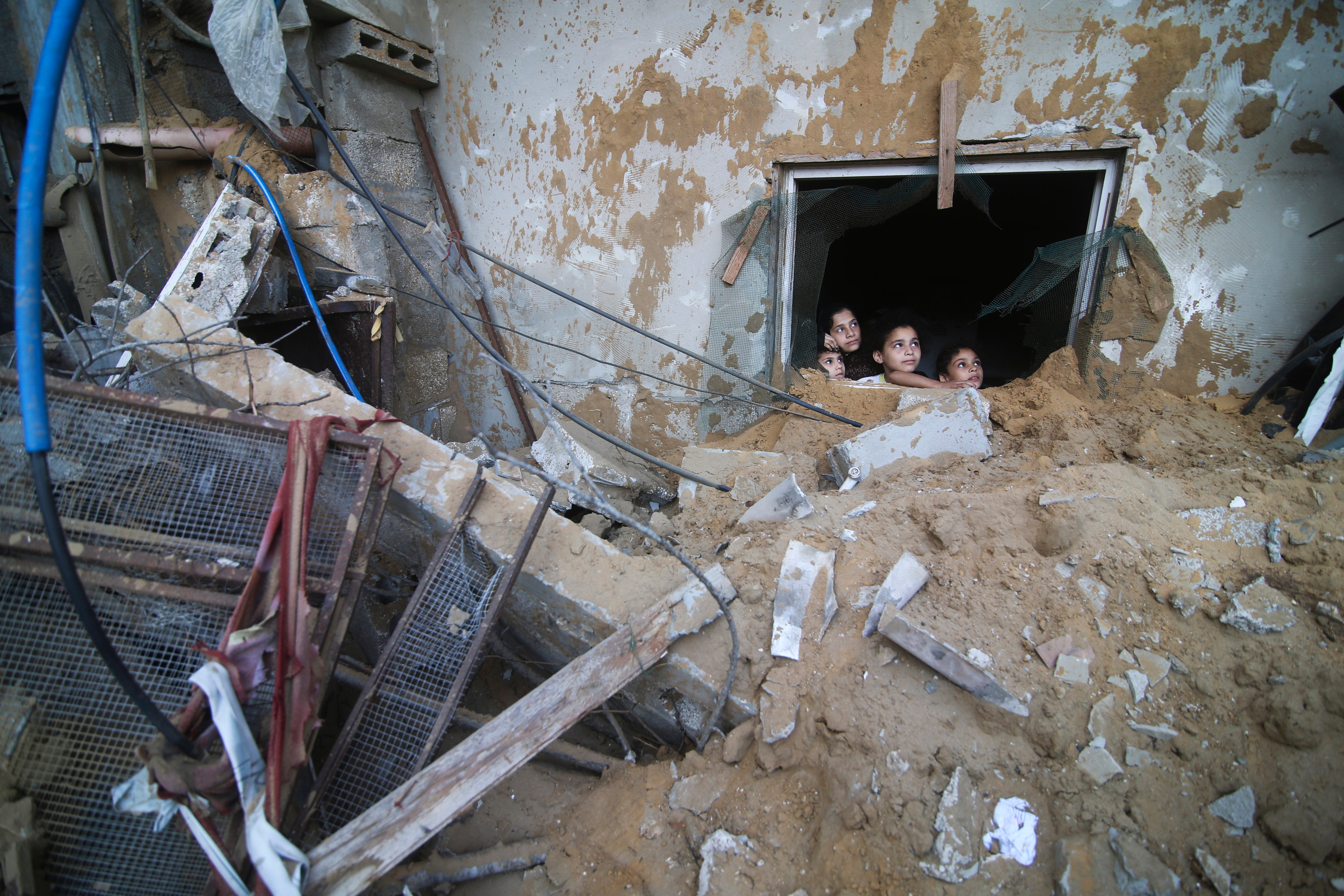Israel must do what Hamas criminally failed to do – and protect civilian lives
International law is absolutely clear that the intentional targeting of civilians is prohibited, writes Eric Lewis. As Israel responds, it must not descend into the same indefensible massive killing of innocents


My wife and I have three cherished grandchildren. They are very young, ranging from three-and-a-half, to just turning one. They probably don’t yet know it, but each is of Jewish parentage. For the same reason – and no other – young children their age were murdered in southern Israel last weekend.
The Israeli government published horrific pictures of babies it asserts were mutilated and burned by Hamas. There were reports – disputed and as yet unverified – that children had been beheaded. Other children are hostages in the labyrinthine chaos of Gaza, their fates uncertain at best.
I am no fan of the current Netanyahu government or, indeed, of his past governments. The situation is untenable. Democracy and hope in Israel have been receding. So too, it appears has the capability of its national security establishment.
But all of that is entirely irrelevant, as a matter of international law and any conception of human morality. Commentators have said last Saturday was the worst day for Jews since the end of the Holocaust. Not just for Jews. Can anyone think of a more awful day than when babies are murdered in front of parents and grandparents or dragged off as hostages? Can anyone look at their own child or grandchild or anyone’s child and not feel the dread and shock and nausea of those images?
Have terrible things happened elsewhere? Has indiscriminate or disproportionate violence been rained down on people everywhere, including in the Middle East? Of course. Innocent people die in war – in both Israel and in Gaza. But this is different, and, also, not just for Jews.
The intentional targeting of civilians as happened last weekend is absolutely prohibited under international law, as is the taking of hostages. As is retaliation. These are war crimes. There is no room for what-aboutism here, whatever one’s views on Israel and Palestine.
For years, Hamas representatives have proclaimed it was not deliberately targeting civilians, Hamas leader Ismail Abu Shanab told Human Rights Watch: “It’s not targeting civilians. It is saying that if you attack mine, I’ll attack yours. If we say yes, we’ll stop, can the world guarantee Israel will stop? The rules of the game were set by the other side. If you follow all our martyrdom operations, you will find that they all came after their massacres. We would accept the rules [of international humanitarian law] if Israel would use them. If you ask us to comply, that is not difficult. Islamic teachings support the Geneva Conventions.”
Well, the game is up with respect to that claim. Israel will be criticised for the civilian death toll of its response in Gaza. But whatever else you might say, the deliberate targeting of children is not Israeli policy.
Radical groups have argued that Israeli civilians are legitimate targets because they are forcible occupiers of Palestinian land and therefore are all combatants and not entitled to civilian status. They also assert that given the imbalance of power and means in the Israeli-Palestinian crisis, the only way to fight back against unjustified aggression is to use the shock of terror attacks to bring their cause to global attention. In wars of national liberation, they claim, anything goes. If that includes the targeting of children, they betray themselves as irredeemably evil. Children are not combatants and can never be legitimate targets.
Under international humanitarian law, even if there is a failure by one party to a conflict to respect the laws of war, this does not relieve the other of its obligation to respect those laws.

That obligation is absolute, not premised on reciprocal adherence. The Geneva Conventions specifically prohibit reprisals against civilians. Additional Protocol I is similarly unambiguous on reprisals: “Attacks against the civilian population or civilians by way of reprisals are prohibited.”
This argument holds for both sides. Even if there was a legitimate argument that Israel did not respect the law of war, that could be no justification for the Gaza massacres. Hamas has breached international law. And as Israel masses troops on the Gaza border – and tells a million people to evacuate from the north of the territory – it must also respect the law of war in actions that it takes.
According to the Palestinian health ministry, more than 700 children have already died in Gaza in the past week as a result of Israeli military action. There is no doubt that thousands more Palestinian children are at risk and that those numbers depend in significant measure on the strategy that Israel adopts.
Some will argue there is a distinction to be drawn between the targeting of children and those who die as so-called collateral victims in war – but the tragedies of their deaths remain the same to their families.
Israel has a duty to respond in a manner that is proportionate and that makes every effort to avoid civilian casualties. As is so often the case, rage is a powerful driver of human behaviour, but it is not a justification of inhuman action.
Children are innocent. They are not reservists or occupiers. They are not terrorists. They are not haters. If children are targeted, it should sicken all decent people and clarify that politics and grievances have limits if we are yet to retain our humanity. And all combatants have a duty to protect children and take care to minimise their risk of harm.
Hamas has shown who it is – that it has no respect for human life. Now Israel must respond in a way that does not descend into the same indefensible massive killing of innocents. Next time you hug your child or grandchild or any child, remember that there is no room here for argument about preserving the lives of children.
Eric Lewis is a human rights lawyer who sits on the board of The Independent






Join our commenting forum
Join thought-provoking conversations, follow other Independent readers and see their replies
0Comments